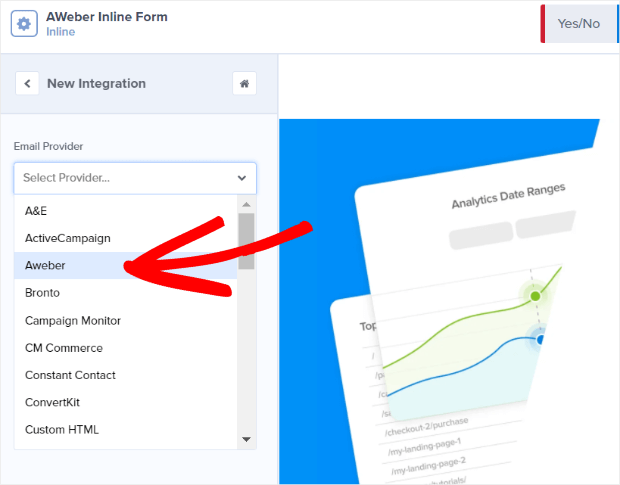Excellent Strategies For Selecting A Hematologist Email list
Excellent Strategies For Selecting A Hematologist Email list
Blog Article
What Do I Need To Be Thinking About When Buying A Hematologist Email List?
In order to get the best results, you have to take into consideration several aspects. These include whether or not the list will be legally compliant, accurate and relevant to you marketing goals. These are the most crucial considerations to consider. Quality of data and accuracy
Source of Information: Confirm that the provider of the email list uses reliable sources, for example, professional directories, medical databases or authentic opt-ins obtained from hematologists. The accuracy with which the contacts were gathered will indicate how well the list is.
Verification & Updates: Ask your provider about their update and verification process for data. Verify email addresses to eliminate inactive or incorrect addresses. Healthcare professionals are more likely to change jobs or institutions, it's essential that the list be regularly maintained.
Segmentation and Specialization: Make sure the list is only for the field of hematology. It is also possible to be segmented by location or experience level, hospital affiliation, and subspecialty. Segmented lists help you more effectively target your outreach.
2. Legal Regulations
Data Privacy Laws : Ensure that your list is in compliance with all applicable laws on data privacy, such as California Consumer Privacy Act, General Data Protection Regulation, in Europe or the General Data Protection Regulation, in the U.S. This means that the email addresses have to be gathered with proper consent.
CAN-SPAM Act : In the U.S.A. make sure that the list complies with the CANSPAM Act, which governs commercial email communications. Failure to comply with the CANSPAM Act can result in penalties. Additionally, your emails might be considered spam.
Opt-in Consent: Only include those doctors on the list who have expressly consented to receive emails from other third parties. Uninvited emailing to patients who don't have consent could result in poor engagement aswell as legal problems.
3. Provider Reputation
Choose a trustworthy company. To determine if the business is trustworthy, search for reviews, testimonials, and case studies. A well-established business with a track record of providing high-quality and reliable data is more likely.
Transparency. Choose a service provider that's transparent about how and where data is sourced. It is best to avoid companies that are unclear or unclear about their collection methods.
Customer Support - It is crucial to select a service that provides excellent customer support. Support is crucial for those who require help with technical questions, customizing your list or if you have any compliance concerns.
4. Costs and Return on Investement (ROI).
Pricing Models: Think about the pricing options available, including whether they are pay-per-contact, flat rate or subscription. Make sure that your price corresponds with the potential ROI. Also, balance the quality of your list and the quantity with the marketing budget.
Refund or Replacement Policy: A trusted supplier will offer a return or replacement policy for inactive or outdated email addresses. Make sure you understand any conditions or terms prior to you make a purchase.
Value for money: Check the attributes of the list (such as segmentation and data accuracy guarantee provided by the provider) with the price. If the quality of the data on the list is not good then the most affordable list may not be the best choice.
5. Data Ownership and Usage
Understanding the distinction between single use and multiple Use Multiple Use: Learn the rules of use for email lists. Some service providers will only allow you to use the list for one email campaign, while others might offer full ownership and unlimited usage rights.
Exclusive vs. Lists that are Shared: Determine whether your email list is private or shared. Exclusive lists often lead to higher engagement, since the list members are less likely to receive marketing emails from different sources.
6. Data Integration and Format
Compatibility of CRM or Email tools: Check that the list can easily be integrated into your CRM platform or marketing tools for email. The list must be in commonly used formats, such as CSV as well as Excel. This will allow for an easy integration.
Usability: Check how easy it is to filter and manage the list. Lists that are hard to manage or segment can hinder the effectiveness of your campaign.
7. Ethical Considerations
Relevance to Hematologists Be sure your outreach emails are appropriate to doctors. Sending out content that isn't appropriate to their expertise may negatively impact your brand's reputation and result in low engagement.
The sending of too many emails could be viewed as spam. Sending out too many emails can damage the reputation of the email sender.
It is important to consider the advantages and disadvantages of purchasing an hematologist's list. Focus on data quality, the compliance with privacy laws, and the credibility of the company to ensure you get a valuable, accurate, and effective list. The importance of segmentation and legal compliance will increase your return on investment while ensuring that you have a positive image for your company. View the recommended hematologists email list for site guide.
What Do I Need To Think About When Purchasing The Data Appending?
It is important to take into consideration various factors when you evaluate appsending services for data in order to make sure that the service improves the quality of existing data, while still maintaining the compliance, accuracy and ethical standards. Data appending is the process of enriching your database by adding missing or additional information such as email addresses, phone numbers, or demographic details. Take into consideration these elements when purchasing data appending services. Accuracy and Quality of the Data
Data source: Make sure whether the appending service provider uses reliable, quality sources such a verified database or public records. The most trusted providers obtain information from reliable sources to make sure that the information they append is correct and pertinent.
Verification process: Determine whether the service provider has an extensive verification and validation procedure. This will ensure that the data are current, accurate and applicable for your requirements. Cleansing and periodic updates should be included in the service.
Match Rates: Different providers will have varying matching rates. It is a percentage of the records you own which can be improved by additional data. As you strive for precision, don't sacrifice quality in favor of a greater match rate.
Customization: Based on your specific requirements, ensure that the service provider provides customizable data append solutions. It could be different types of data like demographic, firmographic and behavioral data.
2. Data Security and Privacy
Compliance with Regulations – Data appending is a service which involves handling sensitive personal information. Therefore, it's crucial to ensure that you are in compliance with privacy regulations such as the California Consumer Privacy Act and General Data Protection Regulation. Data appended must be collected, used and processed legally in order to be protected from penalties.
Consent management: Make sure that the data you are collecting comes from people who gave explicit consent to share their data. Avoid data sources which use methods that are not trustworthy or violate privacy. These can cause ethical and legal problems.
Data Security: Make sure that the service provider has strict data security measures to safeguard both the integrity and security of your existing database, as well as the information appended. Data transfer protocols that are secure are included along with encryption and access controls.
3. Provider Reputation
Vendor with a Good Name: Choose a business that has earned a reputation for delivering appsending services that are precise and legal. Look through reviews and testimonials or case studies to determine their record. A company that is established is more likely to offer high-quality services or to ensure compliance with the law.
Specialization by industry Certain service providers have a focus on certain industries, for example retail, healthcare or finance. Find vendors who have expertise and experience in your specific market if your business is within this sector. It is possible that they provide customized solutions that are more suited to your specific needs.
4. Costs and Returns on Investment (ROI).
Pricing Models: Appending services for data provide a range of pricing options. They offer flat rates for large updates, or per-record fees. Make sure you know how the cost structure aligns with your budget. Be cautious of products that appear to be extremely low in price, as it could be a sign of poor information.
Calculate the ROI potential from adding data. A good service can help you boost engagement, boost conversions and boost overall performance. The cost of the service against the benefits you can expect from having more relevant, enriched data.
5. Appending and Data Types
Types of data: Think about the types of information you'd like to include in your database. Common types include:
Email addresses are crucial to send out email marketing campaigns.
Phone numbers are essential to reach out to customers or for customer service.
Demographic information is useful for segmentation as well as targeted marketing.
Firmographic Data: An essential requirement for B2B firms that are targeting companies based on revenues or size of employees.
Some services allow the appending of social profiles, which is beneficial in marketing via social media and online.
6. Data Integration and Format
Compatibility. Ensure data delivered is compatible with CRM software you're using, your marketing automation program or other tools you may use. CSV, Excel or API integration are common formats that allow you to easily import and use data.
Enrichment and Data Cleansing A reputable service provider must also provide data cleaning services as part of the appending process. This includes correcting inaccuracies as well as removing duplicates and deleting old records. Data enrichment goes beyond simply adding new information--it also improves the overall performance of your current database.
7. Ethical Aspects
Transparency. Service providers must be open and transparent about the methods and where data is collected. Ethical data appending services will adhere to strict guidelines regarding the sourcing of data and their use, ensuring that the information is collected by legally-approved and transparent methods.
Impact on Engagement: Be mindful that appending contact information, such as emails or phone numbers should not result in invasive or spammy methods. Make sure to use the information appended and be sure to follow the best practices when it comes to outreach, opt-out options, and privacy of the consumer.
You can also read our conclusion.
When selecting companies that can be trusted with data, consider the following the quality of data legal conformity, data quality, and the reputation of the provider. Services that offer secure, verified data and are compliant with privacy laws such as GDPR or CCPA must be considered first. Aside from ensuring that the data you are adding is compatible with system in your business Consider the return on investing in accurate and enriched information. Appending data, when carried out in a professional manner and using the right company can improve your company and marketing efficiency. Take a look at the pro data appending services for more advice.